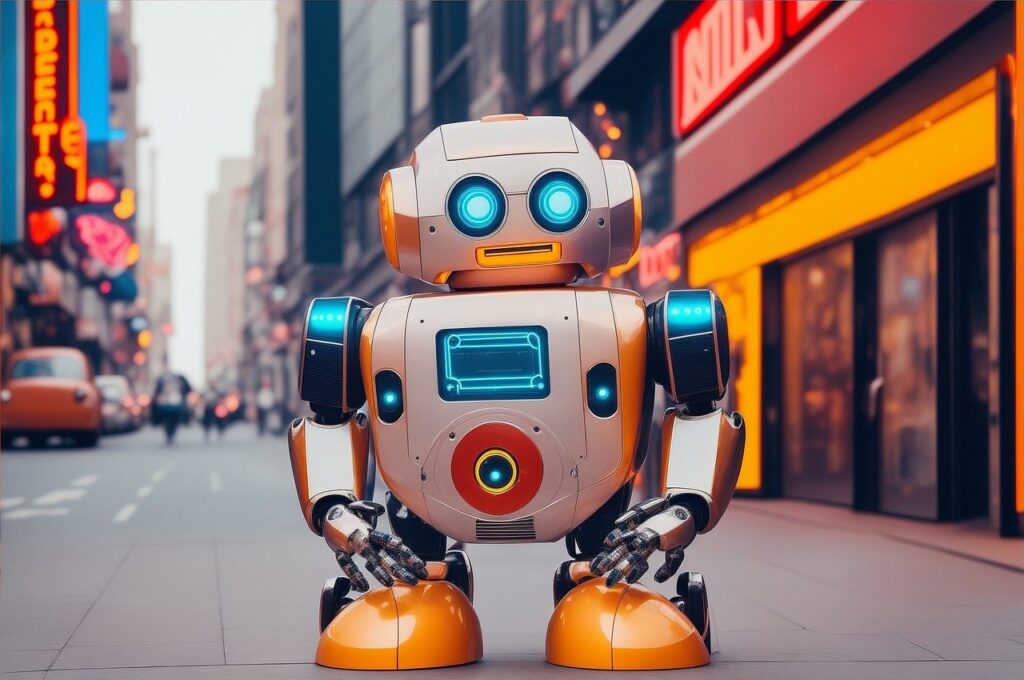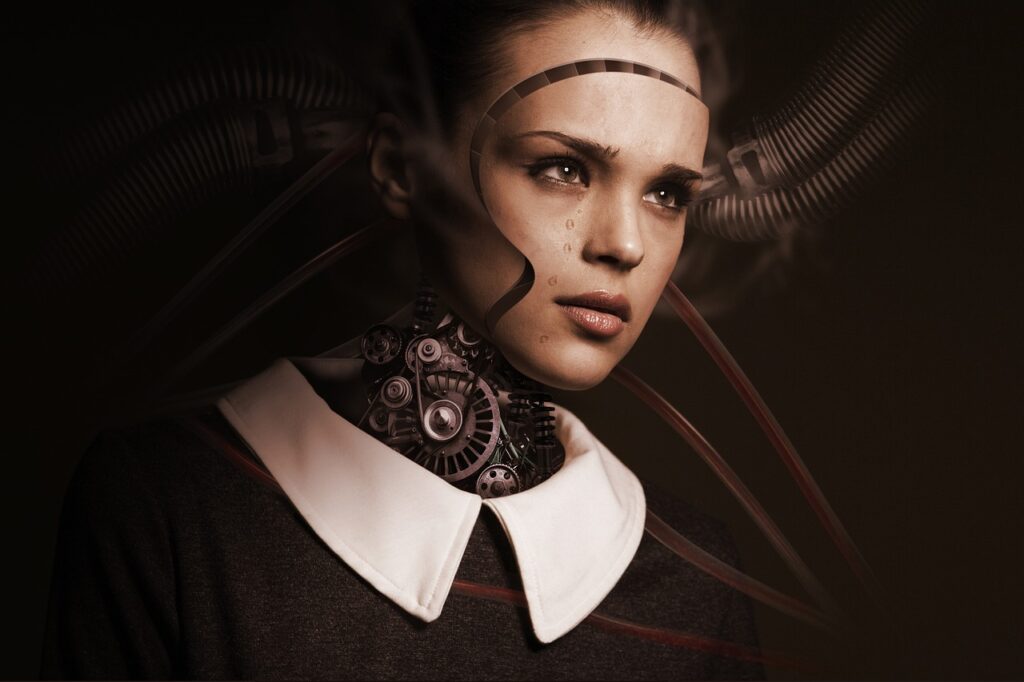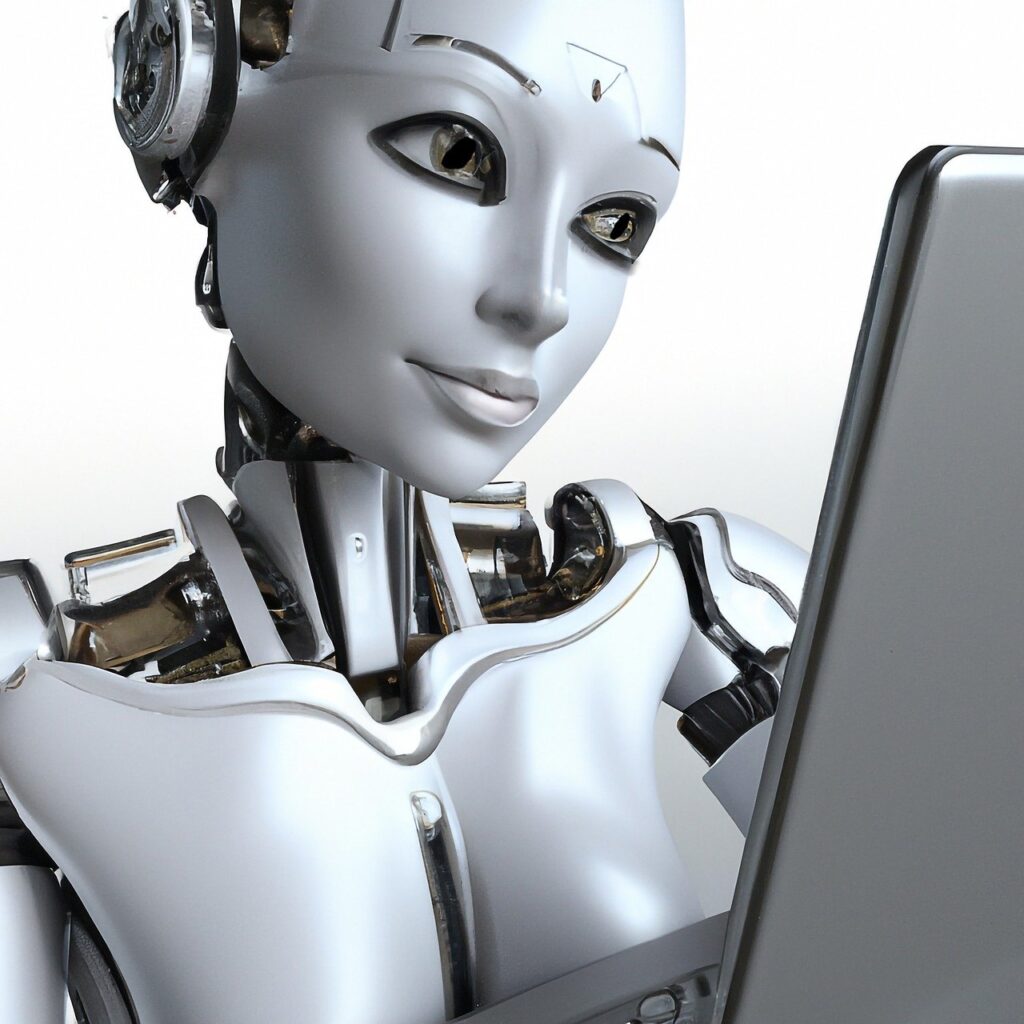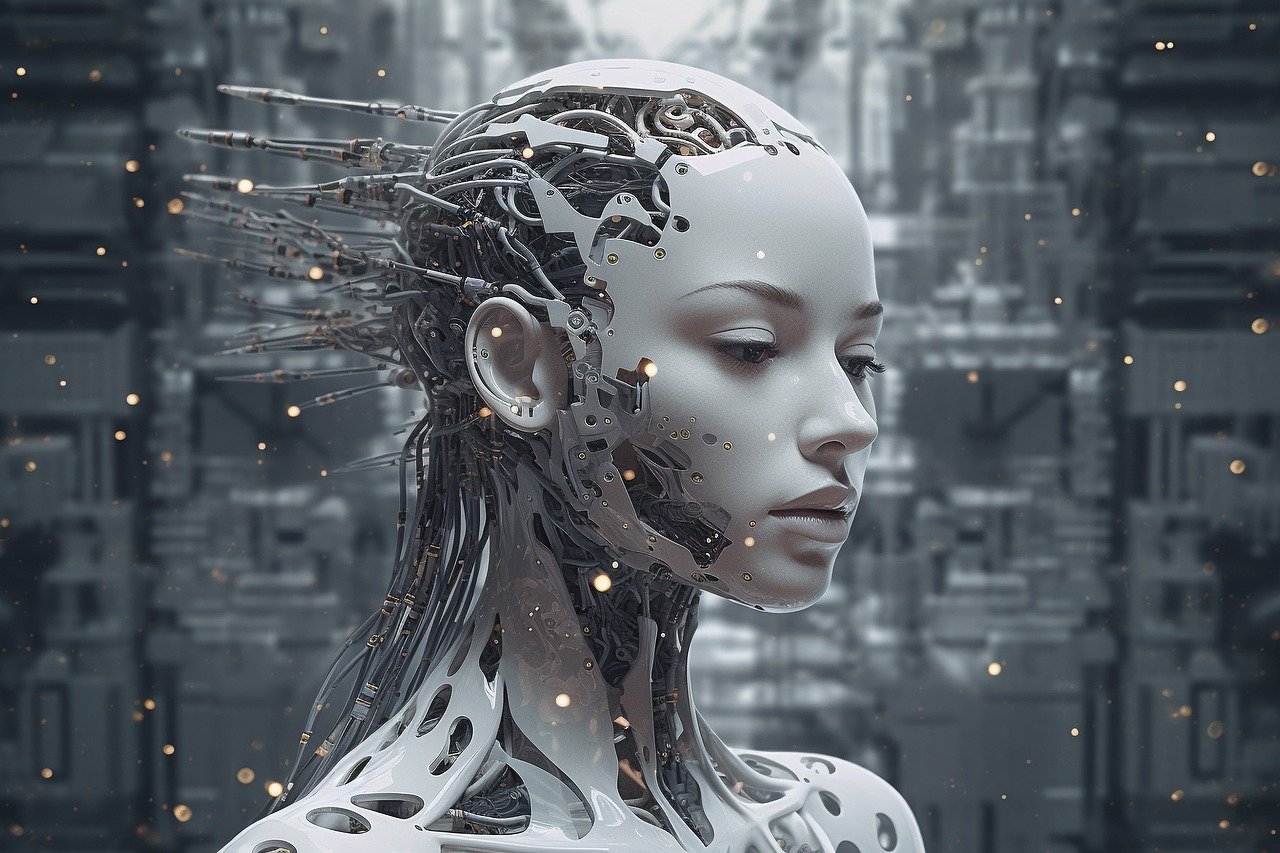Future of Artificial Intelligence in 2025 Artificial Intelligence (AI) has become one of the most transformative technologies of the 21st century, revolutionizing industries, businesses, and everyday life. By 2025, the future of artificial intelligence is set to reach new heights, with advanced innovations and widespread adoption that will reshape how we live, work, and interact with technology. This blog will explore the future of artificial intelligence in 2025, the trends that will define it, and how artificial intelligence is changing the world today.

The Future of Artificial Intelligence in 2025: An Overview
As we look forward to 2025, artificial intelligence will continue to grow in influence and capability. From healthcare to finance, and transportation to education, AI is already making significant strides in automating tasks, enhancing decision-making, and improving efficiency across sectors. But what’s in store for the next wave of AI development?
Key Predictions for AI in 2025:
- Enhanced Human-AI Collaboration
One of the most exciting trends expected in 2025 is the deepening collaboration between humans and AI systems. Rather than replacing human jobs, AI will augment them by taking on repetitive tasks, allowing people to focus on more creative, strategic, and value-driven roles. AI-powered tools like virtual assistants, smart platforms, and collaborative robots (cobots) will become standard in workplaces, improving productivity and work-life balance. - More Ethical and Transparent AI Systems
With the rapid growth of AI, ethical concerns around bias, transparency, and accountability have also risen. By 2025, governments and organizations are expected to implement stricter regulations that ensure AI is used responsibly. There will be a greater focus on developing AI models that are explainable, ethical, and free from biases that could affect decision-making processes. - AI in Healthcare: Precision and Personalization
Healthcare will continue to benefit from AI’s ability to analyze vast amounts of medical data, leading to better diagnosis, personalized treatment plans, and predictive healthcare models. By 2025, AI will enable more accurate diagnostics, improve patient outcomes, and even assist in developing new drugs faster and more efficiently. With AI-driven precision medicine, patients will receive treatments tailored to their genetic makeup and specific health conditions. - AI-Driven Automation Across Industries
Automation, powered by AI, is expected to become even more sophisticated by 2025. In manufacturing, logistics, and retail, AI-driven robots and systems will take over more complex tasks, reducing human error and improving operational efficiency. The use of AI in financial services will streamline processes like fraud detection, risk management, and customer service through automated solutions. - AI in Education: Revolutionizing Learning
The future of AI in education is bright, with personalized learning experiences being one of the most exciting developments. By 2025, AI-powered education platforms will be able to adapt to the learning style and pace of each student, offering custom lessons and feedback. This shift will help close educational gaps, making learning more accessible and tailored to individual needs. - Smart Cities Powered by AI
AI will play a critical role in the development of smart cities by 2025. With advancements in AI-driven traffic management, energy distribution, and urban planning, cities will become more efficient and sustainable. Real-time data analysis will help optimize public transportation, reduce congestion, and improve overall quality of life for city dwellers.
How Artificial Intelligence is Changing the World Today
AI is not a futuristic concept anymore. It’s already playing a pivotal role in changing the way we live, work, and interact with technology. Here are some of the top applications of artificial intelligence today:
1. Healthcare
AI is revolutionizing healthcare by improving diagnostics, speeding up drug discovery, and enabling remote patient monitoring. AI-powered tools are helping doctors diagnose diseases more accurately, while machine learning algorithms predict patient outcomes and identify the most effective treatments.
2. Finance
The finance industry has embraced AI to improve fraud detection, automate trading, and provide personalized financial services. AI algorithms analyze market trends in real-time, making more accurate predictions and helping businesses make data-driven decisions. In personal finance, AI chatbots and robo-advisors assist customers with investment advice, budgeting, and financial planning.

3. Retail and E-commerce
AI is transforming the retail and e-commerce industry by enabling personalized shopping experiences. AI-driven recommendation engines analyze user behavior to offer tailored product suggestions, improving customer satisfaction and increasing sales. Additionally, AI is helping companies optimize supply chain management, reducing costs and improving efficiency.
4. Transportation
Self-driving cars and AI-powered traffic management systems are set to revolutionize transportation. AI helps autonomous vehicles navigate complex environments, reducing accidents and traffic congestion. Additionally, AI is being used to optimize public transportation systems, making them more efficient and eco-friendly.
5. Entertainment and Media
AI is enhancing content creation and consumption in the entertainment industry. Streaming platforms like Netflix and Spotify use AI to recommend personalized content based on user preferences. AI-powered tools are also being used to create music, films, and video games, pushing the boundaries of creativity and innovation.
6. Customer Service
AI-driven chatbots and virtual assistants are becoming more sophisticated, allowing companies to provide instant customer support. These AI tools can handle multiple customer queries simultaneously, improving response times and overall customer satisfaction. By 2025, it’s expected that AI-powered customer service will become the norm across many industries.
Challenges and Ethical Considerations
While AI’s future is promising, it’s essential to address the challenges and ethical concerns that come with its widespread adoption. Issues such as data privacy, algorithmic bias, job displacement, and accountability are all at the forefront of AI development.
1. Data Privacy and Security
AI systems rely on large datasets to function effectively. This reliance on data raises concerns about how personal information is collected, stored, and used. Stricter regulations and ethical frameworks will need to be established to ensure that AI respects individuals’ privacy and data security.
2. Bias in AI Models
AI models are only as good as the data they are trained on. If the data is biased, the AI’s decision-making process can be flawed, leading to unfair or discriminatory outcomes. Ensuring diversity in datasets and transparency in AI algorithms will be critical in overcoming this issue.

3. Job Displacement
As AI continues to automate tasks, there is growing concern about job displacement. While AI will create new jobs, particularly in tech and data analysis, it may also replace certain roles in industries like manufacturing and retail. Governments and organizations will need to invest in upskilling and reskilling programs to help workers adapt to the changing job market.
Conclusion: Embracing the Future of AI in 2025
As we look ahead to 2025, the future of artificial intelligence is filled with possibilities. From transforming industries to improving everyday life, AI will continue to play a critical role in shaping the world. However, with these advancements come responsibilities, and it will be crucial to navigate the ethical challenges and ensure that AI is used for the benefit of all.
Whether it’s enhancing healthcare, revolutionizing education, or creating smarter cities, AI’s potential to improve our world is immense. By staying informed and embracing these advancements, we can prepare for a future where AI is an integral part of our lives.

